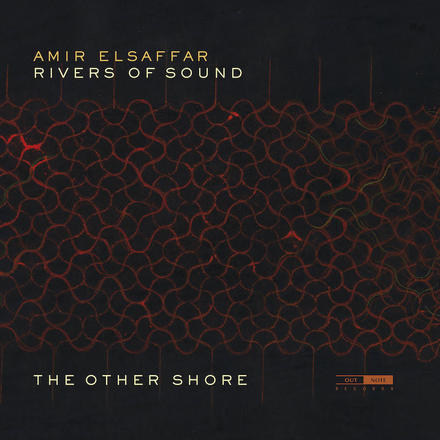Two assets really help a musician bust the Jadedness Barrier: an understanding of multiple traditions, and the ability to blend them. At 44, Chigago's Amir ElSaffar has already been commanding both assets for two decades, and he hits a thrilling vertex with this recording by his 17-piece ensemble Rivers of Sound -- which may refer to the Tigris and Euphrates, or the junction of Arabic music and jazz, but he can draw from many rivers.
ElSaffar's special skill is to avoid making Arabic music sound foreign to Westerners; his own Iraqi/American heritage gives him a head start that helps him pull us into a stream of sound, affecting body as much as mind. He uses microtonal Arabic scales sparingly and almost subliminally, so that they seem as natural to us as many years of practice -- on trumpet, in voice and on the tingling strings of the santur -- have made them to him.
You could divide the eight mostly long compositions on "The Other Side" into dance and trance, often combined. ElSaffar immediately centers us with his own vocal melismas, lulling us into a quiet, hospitable environment before ushering us into a bazaar of variety.
Among the goods on display: drone; riff; groove; plus echoes of flamenco, bebop, African beats, gamelan and modern classical. Among the colorations: Duke Ellington, Yusef Lateef, Adam Rudolph, Pharoah Sanders, Horace Tapscott, Alex Cline.
The music, though composed, interpolates enthusiastic solo and group improvisations from members including Aseem Alatrash (cello), J.D. Parran (winds), Fabrizio Cassol (alto), Nasheet Waits (drums), Miles Okazaki (guitar), Zafer Tawil (oud, percussion), Tareq Abboushi (buzuq), John Escreet (piano) and Ole Mathisen (tenor).
And the entire 78 minutes of "The Other Side" fascinates. The changes occur gently, but with surprise and intrigue -- the facet most reminiscent of Ellington. An open 1960s vibe pairs with modern recording techniques that give the sound field both fullness and microscopic detail.
The main impression, though, is one of humanity -- flesh and breath that we can feel as our own. Amir ElSaffar has located universal common ground.
* * *
Read my reviews of two previous Amir ElSaffar recordings here.

